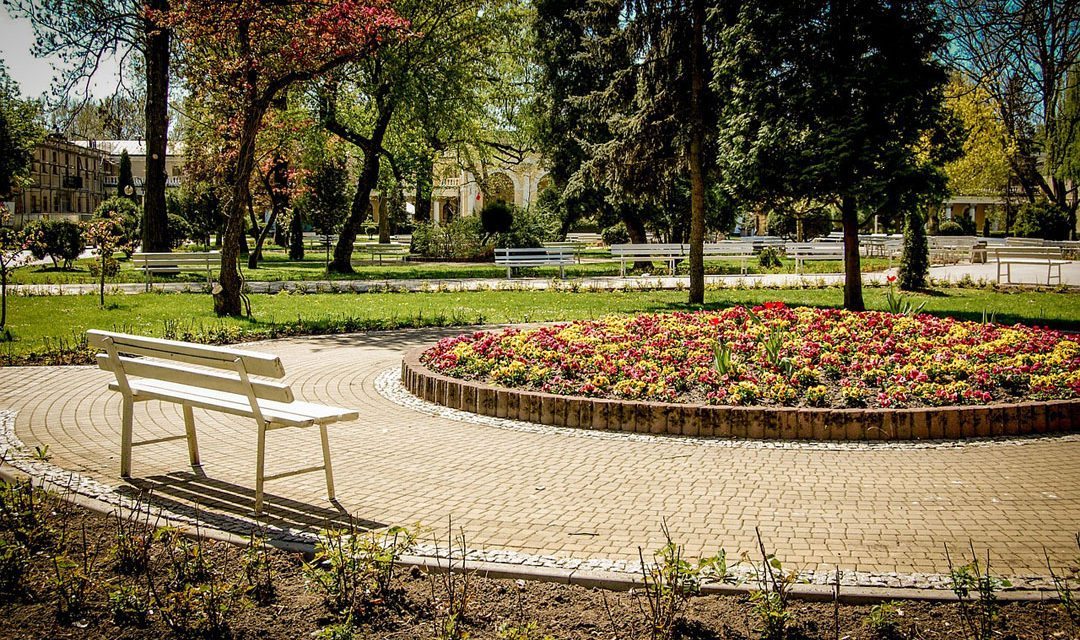People living near popular parks are 14% more likely to report satisfaction with police and 13% more likely to report satisfaction with their mayor, showing greater community connection and greater satisfaction with local government.
NEW YORK, NY – June 22, 2017 – The Center for Active Design (CfAD) published original research from the Assembly Civic Engagement Survey (ACES), the first study to examine specific community design features that influence civic life, using large-sample survey methods and visual experiments. ACES is available for free download from CfAD’s resource library. The study was conducted as part of Assembly, CfAD’s pioneering initiative to explore the role of community design as an essential tool for shaping civic engagement outcomes—including civic trust, participation in public life, stewardship, and informed local voting.
According to Joanna Frank, President & CEO at the Center for Active Design, “With the publication of ACES findings, we are making strides to build widespread awareness around this compelling field of study, and offer concrete data that civic leaders can use to shape communities.”
Assembly, funded by the John S. and James L. Knight Foundation, represents a nascent field with tremendous potential for influencing the civic health of cities. With this in mind, CfAD fielded the ACES study in the summer of 2016, surveying over 5,000 respondents across the U.S. and capturing a diverse cross-section of economic conditions, demographics, and population densities. The survey inquired about respondents’ civic perceptions and behaviors, as well as design elements and maintenance conditions within their communities—generating a trove of data to measure and analyze relationships between characteristics of place and civic life.
“The greatest potential for Assembly is to inform the work of practitioners who are shaping our communities on a daily basis. This exciting research offers concrete data demonstrating that the design and maintenance of public spaces can indeed play a role in supporting, or deterring, civic engagement,” George Abbott, Director of Community and National Initiatives at Knight Foundation.
CfAD’s publication of ACES findings is organized across three main topics: park design and maintenance; neighborhood order and disorder; and welcoming civic spaces and buildings.
Research Highlights include:
• People living near popular parks report greater community connection and greater satisfaction with local government. They are 14% more likely to report satisfaction with police and 13% more likely to report satisfaction with the mayor.
• Litter is associated with depleted civic trust. People who report litter to be “very common” in their neighborhood exhibit reduced civic trust across a number of measures, including 10% lower community pride and 10% lower likelihood of believing that community members care about one another.
• Vacant lots present a challenge, and an opportunity. A photo experiment indicates that even moderate clean-up of a vacant lot can significantly enhance measures of civic trust—including a 13% increase in the belief that people care about their community.
• Respondents reporting adequate public seating in their communities also score 10% higher on a civic trust index and 4% higher on participation in public life.
• ACES demonstrate that relatively modest design improvements can make a difference in civic perceptions. Photo experiments found that incorporating seating, greenery, lighting, and positive messaging can make civic spaces feel more welcoming and inclusive.
ACES findings will serve as a cornerstone in shaping the overarching Assembly initiative—inspiring research questions for future experiments, and informing the development of the forthcoming Assembly design guidelines, scheduled for publication in 2018. While there is still much more to learn about the relationship between place-based design and civic engagement, ACES provides a roadmap for the future of this essential field of study.



